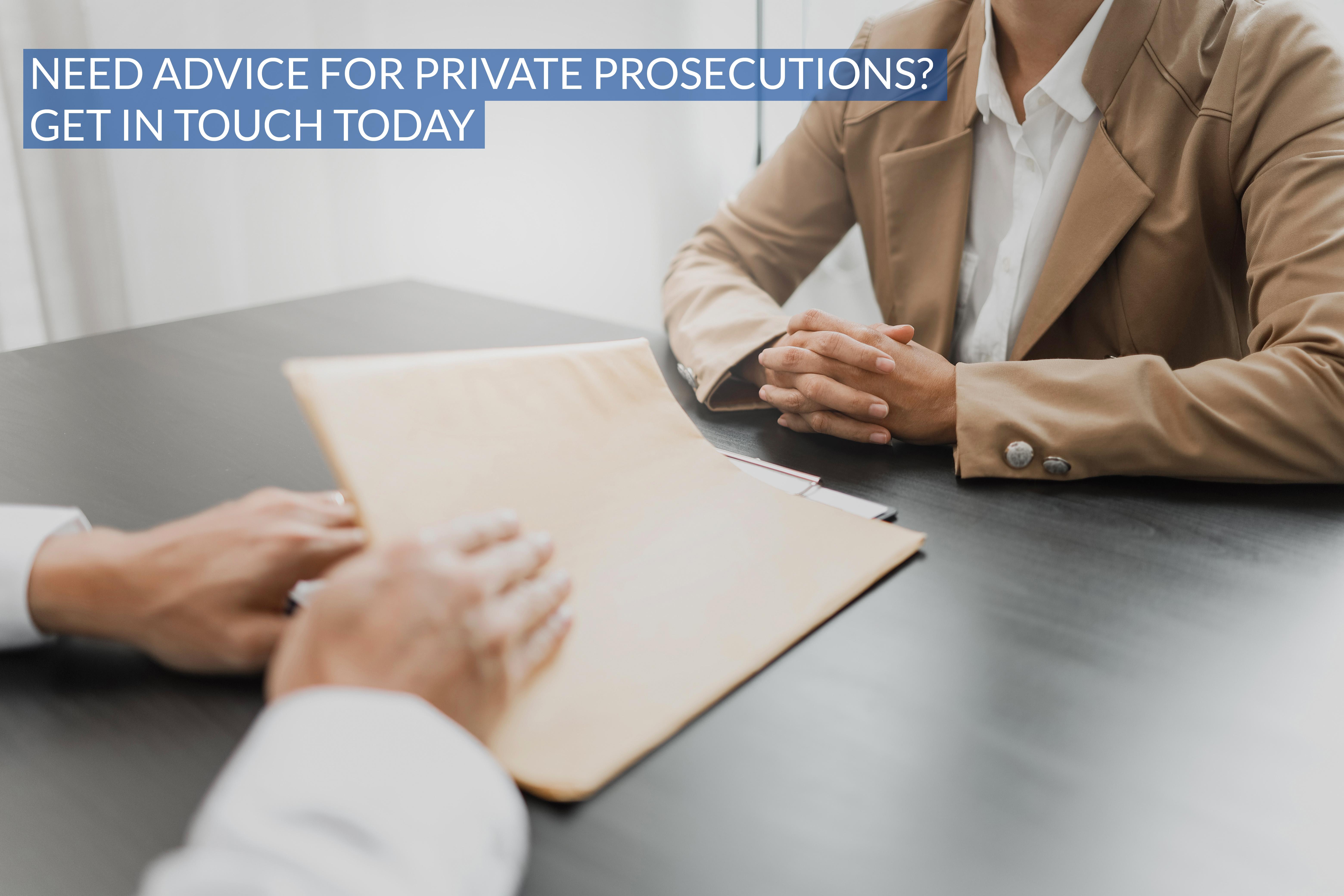What you can Expect from Us
We are serious about fighting for justice and have over 20 years experience in the legal profession.
We pre-vet your case free of charge within 2 hours whenever possible and without obligation.
If you have a good case we quickly pass it to a senior barrister who will consider it for no win no fee. A small administrative fee is only payable when we seek a barrister's opinion. If the barrister agrees, he will take on the case on a no win no fee basis.
We can also insure you against paying your opponent's legal costs. Our Panel barristers and solicitors don't just run cases - they win cases and it is they and not you who take the risk.
Any member of the public is fully entitled to bring a Private Prosecution against another individual unless the offence is one for which consent of the Attorney General or Director of Public Prosecutions is required before a Prosecution can take place. In effect, the Prosecutor stands in the place of the Police in taking out his own Prosecution. The process begins when the Prosecutor lays an information before a Magistrates Court in writing.
Private Prosecutions are Prosecutions not brought by the Crown or other statutory body. As well as an individual, a Company can bring a Private Prosecution too. (See Section 6(1) Prosecution of Offences Act 1985.)
Why bring a Private Prosecution?
• Remarkably, if you have suffered at the hands of a fraudster, it might be cheaper to bring criminal proceedings rather than launching a civil claim.
• Prosecutions are a formidable deterrent because of the powers of the criminal courts – including confiscation proceedings.
• You can control the speed of the investigation and prosecution, rather than being in the hands of the Crown Prosecution Service.
What is the process of a Private Prosecution?
You lay the information and a District Judge at the Magistrates Court will consider, either on paper or at a Hearing, whether to let the Prosecution proceed. The Information must describe the offence in ordinary language, state the legislation that creates the offence and contain sufficient particulars of the conduct to ensure the allegation against the Defendant is made out clearly.
Once an Information has been laid, a Magistrate may then issue a Warrant. In doing so, regard must be had to whether an offence known in law is alleged; whether it is in time; whether the Court has jurisdiction and whether the Informant has the necessary authority to prosecute. The Warrant may be issued without giving the parties any opportunity to make representations and without a Hearing.
Can the CPS intervene?
The Prosecutor is under no duty to inform the CPS that a Private Prosecution has commenced. But they may become aware of it in one of a number of ways. The Private Prosecutor can ask the CPS to take over the Prosecution. The Defendant can ask the CPS to take over the Prosecution. The Magistrates Court can refer the Prosecution to the CPS. A judge of the Crown Court can refer the matter to the CPS. On occasions the CPs will hear of it via a press report.
Upon hearing of the Private Prosecution, the CPS is entitled to request a full set of papers from the Private Prosecutor. Upon review of the case papers, the CPS may take over and continue with a Private Prosecution if they are of the opinion that it meets the Evidential Sufficiency Test and additionally the Public Interest Test, and that there is a particular need for the CPS to take it over.
However, the CPS may take over and terminate a Private Prosecution if either of those above tests is not met. But even if they are, they can still take such action if they believe the Prosecution is likely to damage the interests of justice. This would be where the Prosecution interferes with another criminal offence, or interferes with the Prosecution of another criminal offence or the Prosecution is regarded as vexatious.
These tests need to be applied separately to each every allegation.
What type of criminal offence are we generally referring to?
Private Prosecutions can be brought in relation to any alleged criminal offences, subject to the points raised above. This will include:
a) Fraud
b) False Adverse Possession Claims
c) Harassment and Stalking
d) Blackmail
e) Rape and other sexual offences
f) Perverting the Course of Justice
g) Road Rage and Domestic Violence
A Private Prosecution is often pursued when the Police/CPS have decided not to take a matter further but in circumstances where the victim considers their decision is unjustified.
What does the defendant do?
When the Defendant becomes aware of the Private Prosecution, he can ask the CPS to intervene. He will then be contacted by the CPS and invited to send to the CPS a copy of any papers served upon them by the Private Prosecutor. The Defendant will also be asked to provide any further information they are willing (not compelled) to disclose which may assist the CPS in their decision-making process.
This may be information about their Defence or about any relevant public interest considerations. The Police will also be asked by the CPS to confirm whether there is any material that might undermine the Prosecution or assist the Defence. The Prosecutor is bound to supply information to the CPS whilst the Defendant cannot be compelled to do so.

